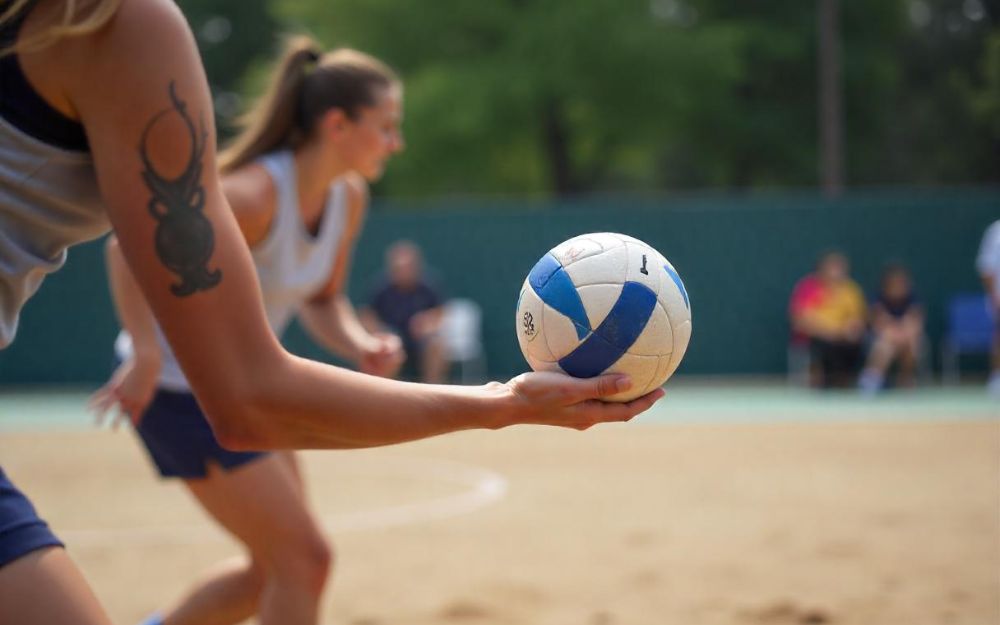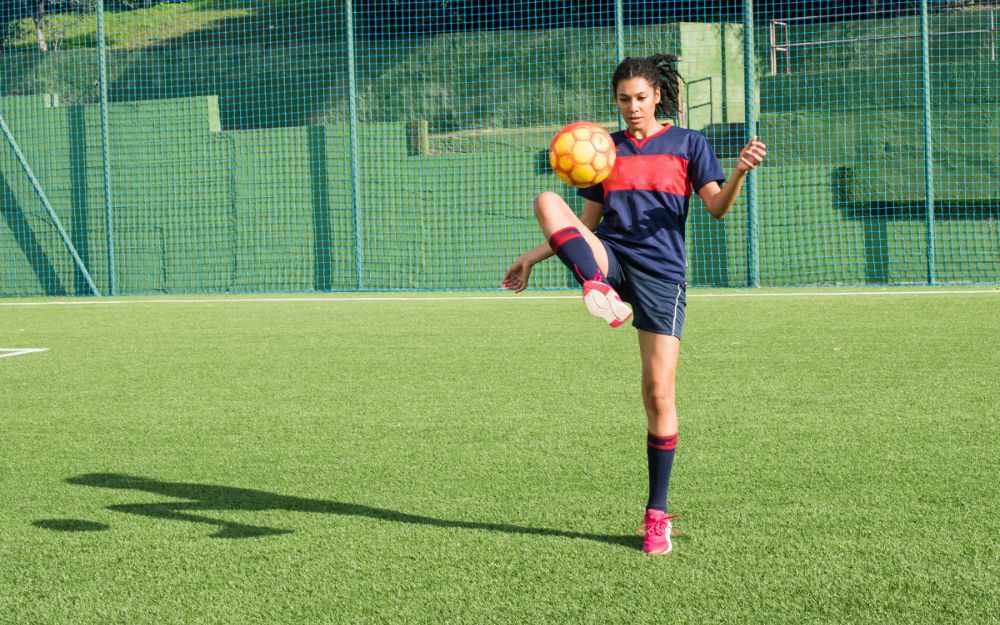Netball is a fast-paced game that has won the hearts of players worldwide, particularly in countries such as Australia, New Zealand, and the UK. Whether you are a beginner or simply brushing up on your skills, it is important to know how to play netball step by step. In this guide, we’ll simplify everything you need to know, including how to play netball for beginners, basic rules, essential skills, and effective defense.
What Are The Basics Of Netball?
To understand how to play netball step by step, first, let’s cover the basics. It’s a game between two teams of seven players. The main idea is to score more goals than the other team by throwing the ball through a hoop that’s up high.
Also, each player has a specific part of the court they can move around in. The court is split into thirds, and only certain players can go into the shooting circle. One interesting rule is that you can’t run with the ball – you have to pivot and pass it.
A quick overview of the most important basics follows:
- The ball must be passed within three seconds.
- Players must remain within the boundaries of their zones.
- Physical contact is minimal and strictly controlled.
- Effective passing, footspeed, and good communication are essential.
If you’re looking for how to play netball for beginners, following these basics will prepare you.
How To Play Netball In Australia?
In Australia, netball is a really loved sport, especially for women and girls, and there are organized leagues for all levels, including the top Suncorp Super Netball. It’s good to know that in Australia, they value being a good sport, getting better at the game, and being fit, not just winning.
Plus, most schools and community centers have beginner programs that make learning netball step by step easy. For anyone in Australia wanting to learn how to play, it usually starts with:
- Playing for a local school or club team.
- Training sessions to learn drills and techniques.
- Learning to play netball rules that are in harmony with Netball Australia’s official rules.
- Practice sessions with team members to create effective court strategies.
Australians strongly believe in inclusive play in netball, so everyone, no matter their ability, can feel comfortable on the court.
Get ready to start gearing up for your next netball game!
Shop now for top-quality netball patches and bibs — perfect for beginners and seasoned players alike!
What Are The 5 Main Rules Of Netball For Beginners?
When you’re new and searching for how to play netball rules, understanding the core rules is crucial. Here are the five main rules that every beginner should know:
- No Stepping: After you’ve caught the ball, you should not make any extra steps. You can spin on one foot but need to pass or shoot without stepping.
- Three-Second Rule: You need to pass the ball within three seconds after catching it. It maintains the game speed.
- Obstruction Rule: The defense players should remain at least three feet away from the ball carrier unless they are trying for an interception.
- Contact Rule: Physical contact that blocks a player is not permitted. This encourages a fair and safe playing environment.
- Area Restrictions: All players have restrictions on certain zones of the court based on position. Knowing your restricted zones matters to team structure.
When studying how to play netball for beginners, mastering these five rules will dramatically improve your confidence and performance.
How Many Skills Are There In Netball?

Netball takes a lot of skill, and as you learn how to play netball step by step, you’ll soon see it’s not just about throwing and catching the ball. Usually, the most important skills in netball can be put into these groups:
- Passing Skills: Chest pass, bounce pass, overhead pass, and shoulder pass are the most important types.
- Catching Skills: Catching the ball safely under pressure is essential.
- Footwork: Understanding the laws of landing and pivoting without making stepping violations.
- Shooting: Effective goal shooting is very important to shooters and goal attackers.
- Defending: Pass intercepting, shot blocking, and defending a netball player as per the rules.
- Dodging and Fainting: Moving cleverly to get away from a defender.
Overall, players learn about 8 to 10 basic skills regularly. If you are really interested in learning how to play netball, repeated practice of these skills will set you apart on the court.
How To Defend A Netball?
Defense is a key skill in netball, and if you want to be a good player, you absolutely have to learn it. Knowledge of defend a netball means being fast, guessing what the other team will do, and standing in the right spot.
Following are some of the important tips on defending:
- Maintain Distance: Always stay at a distance of three feet so as to stay clear of penalties.
- Stay on Your Toes: Be ready to jump, turn, and quickly change direction to cut off passes.
- Use Your Arms Wisely: Hold out your arms to block passes and shots without making contact with them.
- Shadow Your Opponent: Follow their movements closely without fouling.
- Anticipate Plays: Observe the body language of your opponent to anticipate passes and shots.
If you genuinely want to be a defensive genius of how to defend a netball, then you need to refine drills that develop your agility, concentration, and decision-making speed.
Positions such as Goal Keeper (GK) and Goal Defense (GD) basically require these skills, but everybody will find good defensive awareness useful.
Conclusion
Learning how to play netball in stages is a fun adventure that leads to better health, good teamwork, and lots of enjoyment. Whether you’re just beginning or want to improve, understanding the rules, practicing basic skills, and learning how to defend are all part of the fun. Don’t forget, learning how to play netball rules and regular practice will make you a self-assured player in no time.
If you’re preparing for a season or starting from scratch, proper equipment is essential.
Shop now for high-quality Netball Patches and Bibs to make your team look professional and remain well-organized on the court.
Ready to dress your team?
Request a quote today and take the first step towards utilizing the best equipment in your netball career!










